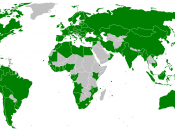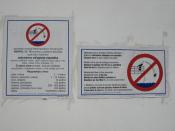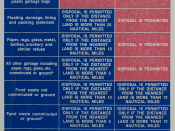The International Convention for the Prevention of Pollution by Ships
The International Convention for the Prevention of Pollution by Ships is the main international convention covering prevention of pollution of the marine environment by ships from operational or accidental causes. It is a combination of two treaties adopted in 1973 and 1978 respectively and updated by amendments through the years.
Oil pollution of the seas was recognized as a problem in the first half of the 20th century and various countries introduced national regulations to control discharges of oil within their territorial waters. However, in 1954, the United Kingdom organized a conference on oil pollution which resulted in the adoption of The International Convention for the Prevention of Pollution of the Sea by Oil (OILPOL).
The 1954 Convention, which was amended in 1962, 1969 and 1971, primarily addressed pollution resulting from routine tanker operations and from the discharge of oily wastes from machinery spaces - regarded as the major causes of oil pollution from ships.
The 1954 OILPOL Convention, which entered into force on 26 July 1958, attempted to tackle the problem of pollution of the seas by oil - defined as crude oil, fuel oil, heavy diesel oil and lubricating oil - in two main ways:
1.It established "prohibited zones" extending at least 50 miles from the nearest land in which the discharge of oil or of mixtures containing more than 100 parts of oil per million was forbidden;
2.It required Contracting Parties to take all appropriate steps to promote the provision of facilities for the reception of oily water and residues.
Although the 1954 OILPOL Convention went some way in dealing with oil pollution, growth in oil trade and developments in industrial practices were beginning to make it clear that further action, was required. Nonetheless, pollution...


